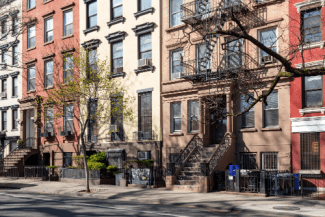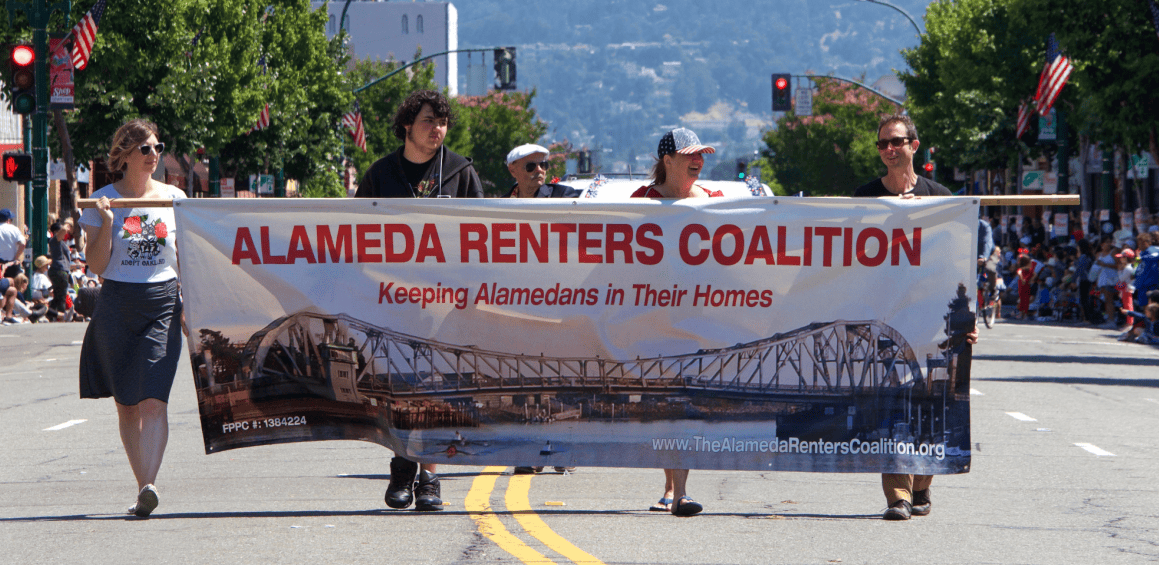A push to cap NYC broker fees gets new life as rents — and commissions — skyrocket
With New York City rents bouncing back from pandemic lows into historic highs, a spate of high-profile cases of brokers asking for thousands of dollars in fees in exchange for highly coveted apartments is reigniting the push among city and state lawmakers to cap or eliminate the commission prospective renters pay.

But a lawsuit mounted by the powerful real estate industry reinstated the ban, punting the issue back to lawmakers.
After a pandemic-induced lull on commissions, they’re now roaring back to life at rates previously unseen, with some brokers requiring more than twice as much in commission fees as before, leaving renters and lawmakers exasperated at the amount of money needed up front to secure an apartment.
“Brokers are price gouging,” said Andrea Shapiro, the director of programs and advocacy for the Met Council on Housing, a tenants’ rights group. “We don’t allow price gouging on food and water and salt in the winter, why are we allowing it on where we live?”
The recent reports of a broker asking a $20,000 fee in exchange for a highly coveted rent-stabilized apartment that was listed for $1,725 a month on the Upper West Side helped spark demands of capping broker fees or getting rid of them altogether.
What Happened?
New York is among a handful of cities nationwide where tenants are largely required to pay thousands of dollars to brokers to lease an apartment, even when the tenants found the listing themselves and the brokers oftentimes are not hired by the prospective renter.
The amount can range anywhere from a month of rent to 15% of the annual rent or above.
Prior to the pandemic, a push to cap broker fees shouldered by prospective renters gained momentum among tenants, advocacy groups, and some lawmakers, who saw it as a relatively easy issue to tackle legislatively.
“I can tell you the week that there were no brokerage fees was like the best week on our hotline ever,” said Shapiro. “It was just so much fun to tell people, no, you don’t have to pay broker fees.”
So, what happened?
While broker fees are the scourge of many renters who complain of absent and inattentive brokers making thousands of dollars, tenant advocates and lawmakers say the push was abandoned to focus on other big-ticket housing priorities, such as a form of universal rent control.
Free Rental Application
Get 20 Rental Forms for FREE, including a rental application.
Capping broker fees, said Shapiro, “isn’t the main movement of the tenant movement.”
Up until recently, the fees “have not been a thing” for low-income tenants, she added.
Over the last legislative session in Albany, housing advocates and their allies in the state Legislature were instead focused on passing the so-called Good Cause Eviction proposal, a priority for progressives that would only allow landlords to deny lease renewals under limited circumstances.
Also at the top of their list was ensuring that a lucrative tax abatement program known as 421-a was not renewed after it expired. The program gives developers multimillion-dollar tax breaks in exchange for setting a small portion of their housing stock toward affordable housing.
“I would say those definitely – they ate a lot of the oxygen in the room,” said state Sen. Jabari Brisport, who last year introduced legislation that would have pushed the rental commission fees onto property owners if they were the ones who hired the agents.
While lawmakers and advocates were successful in ensuring that the tax abatement lapsed, their efforts to see Good Cause through the finish line were not.
A Pandemic Pause
As state lawmakers were mulling changes to rent laws in 2019, city officials were readying their own regulations for the industry.
A proposal in the City Council sought to limit broker fees to a month of rent.
Despite having the support of “roughly” half of his colleagues to cap fees, the measure introduced by Councilmember Keith Powers was sidelined because Albany seemingly tackled the issue in the rent law overhaul that same year, according to one of his Council colleagues.
Tucked away in the 2019 rent laws was a provision that capped all application fees for prospective renters at $20 and forbid charging more than one month’s rent for a security deposit. The Department of State interpreted that as also meaning broker fees were eliminated, meaning that the city no longer needed to act to limit the fees, said Councilwoman Carlina Rivera, a co-sponsor of the measure.
“That’s a big reason why our bills didn’t necessarily move forward,” she told Gothamist.
But as soon as the broker fees vanished, the lawsuit from the real estate industry rolled through and a judge temporarily blocked the Department of State guidance from taking effect.
Then came the COVID-19 pandemic in March 2020, which sent rents plummeting after tenants fled the city to escape the coronavirus and left thousands unemployed and unable to pay rent.
For most of 2020, Rivera said she and her colleagues were facing more pressing issues as the pandemic ravaged the city — such as making sure the city’s hospital system was equipped to care for COVID-19 patients and finding shelter for men and women who lived on the streets.
“At that moment, broker fees didn’t seem like the major issue when millions of people can’t pay rent,” said Shapiro.
Roaring Back to Life

Last spring, a real estate broker demanded a $10,000 fee from a prospective tenant who wanted to lease an Upper East Side rent-stabilized apartment that cost $2,250 a month, according to the website Hellgate.
Earlier this month, the agent’s colleague at brokerage firm City Wide Apartments asked and got twice the commission – nearly $20,000 – for an Upper West Side rent-stabilized apartment that was going for $1,725 a month, according to the New York Post.
While there’s nothing in state law barring the practice or stipulating how much renters can be charged, the Department of State that oversees housing law and licenses real estate agents, said this week it’s investigating the nearly $20,000 broker fee.
According to an agency spokesperson, a real estate licensee cannot “charge exorbitant commissions that have no reasonable relationship to the work involved in earning the commission.” They did not say what “exorbitant” means.
A person who answered the phone at City Wide Apartments said the company declined to comment and hung up.
The Real Estate Board of New York, which represents brokers and led the lawsuit against the state for curtailing the fees, declined a request for an interview.
A spokesperson for the influential group said in an email that the fees imposed by brokers aren’t static and can be negotiated.
“Commissions are freely negotiable (as well as free market rents),” said spokesperson Sam Spokony. “That being said, real estate licensees are expected to conduct their business in a truthful and honest way.”
But the high fees for rent stabilized apartments, whose rents are buffered from the mercurial fluxes of the market, are providing a new rallying cry for city and state lawmakers to tackle the issue soon.
With the costs of rents continuing to increase, both Rivera and Brisport said they plan to once again take up the mantle.
“Revisiting the conversation with my Council colleagues, with Councilmember Powers, is something that we intend to do because of the housing affordability crisis that is going on right now,” Rivera said.
Source: Gothamist















 Accessibility
Accessibility